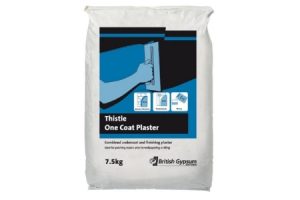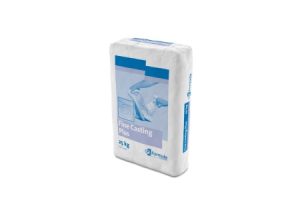Share This Article
What are the advantages of plaster?
When you plaster the walls, you not only make them look nicer and more refined, but you also make them more durable than they were before you plastered them. This is because plaster strengthens the bond between the wall’s surface and its underlying material. Plaster is a substance that, when it is carefully mixed and set, can give a wall finish that is harder and more long-lasting than drywall, provided that the plaster is put up using the correct technique. This is the case only if the plaster is put up using the correct procedure. If the plaster is put in the appropriate manner, then this will be the result. This would only be the outcome in the event that the plaster was applied in the correct manner. As a direct result of this, the walls end up becoming a great deal more sturdy as a direct result of the chemical reaction that takes place as the water evaporates from the plaster mixture. This happens as a direct result of the chemical reaction that takes place as the water evaporates from the plaster mixture. This is because a chemical reaction takes place as a direct result of this activity, which explains why this takes occur.
Interested to find out more about plaster? Visit Travis perkins.
This item has been given a total of one coat of thistle plaster, and the final weight of the item, after all of the coatings have been applied, is 7.5 kg. Plaster that is suitable for use not only on plasterboard but also on brick, block, and concrete; in addition, it is capable of serving as both an undercoat and a finish and may be applied to any of these surfaces. It is possible to use it on any of these various surfaces, which is what makes it the ideal instrument for finishing repairs before tiling or hanging wallpaper because it can be used on any of these surfaces. Simply because it can be utilised on any one of these many different kinds of surfaces. In addition to being suitable for use on plasterboard, it may also be applied to concrete, brick, and block surfaces, as well as being suitable for use on plasterboard. The ideal product for applying to a surface, whether one is doing it for one’s personal use or for the use of other individuals.
Below are the visuals of Thistle coat plaster by Travis perkins:
Total price: £15.08
The finish plaster that British Gypsum may apply is known as Thistle Multi-Finish, and its name comes from the thistle plant. It is available in many various hues to choose from. The manufacturing of the plaster calls for the utilisation of gypsum. Because gypsum is an essential ingredient in the making of this plaster, acquiring it is the very first step in the process. It is made to be used simultaneously on a broad variety of different surfaces and settings, all of which are well within the scope of its capabilities. In addition to providing the interior of the building with a surface that is smooth, nonreactive, and of a high quality, it also serves as a stable platform on which aesthetic treatments can be placed in order to improve the area’s overall appearance. In addition to this, it ensures that the walls and ceilings located inside the structure have a surface that is smooth throughout its entirety. This could be located within the framework of the building. When every one of these advantages is taken into account, it becomes clear that adopting a new strategy is, without a doubt, the superior option to pursue.
Below are the visuals of British gypsum coat plaster by Travis perkins:
Total price: £8.68
Fine Casting Plus is a hemihydrate plaster (CaSO4. 1/2H2O) that is manufactured through the utilisation of a naturally occurring gypsum mineral that possesses an extremely high level of purity. This process results in the production of the product. This material is incorporated into the production of the product known as Fine Casting Plus. Putting ourselves through this process ultimately results in the production of the product that we want. The production method requires considerable applications of this mineral in order to function properly. The foundry business was the impetus behind the development of this particular kind of plaster, which was used in castings. The plaster that is manufactured by Fine Casting Plus can be utilised for a wide variety of purposes, some of which include the creation of jaw-dropping fibrous plasterwork, the building of film sets, and general casting applications. Fine Casting Plus also produces plaster that can be used for these purposes. When attempting to provide an acceptable description of the colour of the appearance of this object, the phrases “off-white” and “ivory” come to mind as potential candidates.
Below are the visuals of Fine casting plaster plus by Travis perkins:


